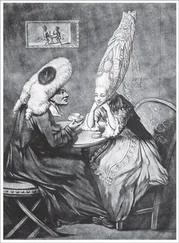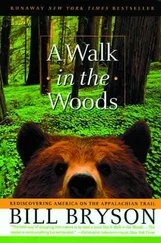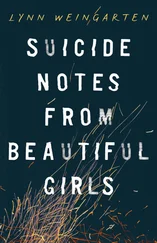Bill Bryson - Notes from a small Island
Здесь есть возможность читать онлайн «Bill Bryson - Notes from a small Island» весь текст электронной книги совершенно бесплатно (целиком полную версию без сокращений). В некоторых случаях можно слушать аудио, скачать через торрент в формате fb2 и присутствует краткое содержание. Жанр: Современная проза, на английском языке. Описание произведения, (предисловие) а так же отзывы посетителей доступны на портале библиотеки ЛибКат.
- Название:Notes from a small Island
- Автор:
- Жанр:
- Год:неизвестен
- ISBN:нет данных
- Рейтинг книги:4 / 5. Голосов: 2
-
Избранное:Добавить в избранное
- Отзывы:
-
Ваша оценка:
- 80
- 1
- 2
- 3
- 4
- 5
Notes from a small Island: краткое содержание, описание и аннотация
Предлагаем к чтению аннотацию, описание, краткое содержание или предисловие (зависит от того, что написал сам автор книги «Notes from a small Island»). Если вы не нашли необходимую информацию о книге — напишите в комментариях, мы постараемся отыскать её.
Notes from a small Island — читать онлайн бесплатно полную книгу (весь текст) целиком
Ниже представлен текст книги, разбитый по страницам. Система сохранения места последней прочитанной страницы, позволяет с удобством читать онлайн бесплатно книгу «Notes from a small Island», без необходимости каждый раз заново искать на чём Вы остановились. Поставьте закладку, и сможете в любой момент перейти на страницу, на которой закончили чтение.
Интервал:
Закладка:
I had recently been to Hobart in Tasmania, where the Sheraton chain had built a hotel of stunning plainness on its lovely waterfront. I had been told that the architect hadn't actually visited the site and had put the hotel restaurant at the back, where diners couldn't see the harbour. Since then, I had thought that was the most brainless thing I had ever heard of architecturally. I don't suppose this pair could possibly have been designed by the same architect it was terrifying to think that there could be two architects in the world this bad but he could certainly have worked for the firm.
Of all the buildings that I would deeply love to blow up in Britain the Maples building in Harrogate, the Hilton Hotel in London, the Post Office building in Leeds, a lucky dip among almost any structure owned by British Telecom 1 have no hesitation in saying that my first choice would be either of these two.
And here is the cruncher. Guess who inhabits these two piles of heartbreak? Well, I'll tell you. The larger is the regional headquarters of the Highland Enterprise Board and the other is the home of Inverness and Nairn Enterprise Board, the two bodies entrusted with the attractiveness and wellbeing of this lovely and vital corner of the country. God.
CHAPTER TWENTYSEVEN
I HAD BIG PLANS FOR THE MORNING: I WAS GOING TO GO TO THE BANK, buy some plastic vomit, have a look at the local art gallery, perhaps take another stroll along the lovely River Ness, but I woke late and had no time to do anything but fumble my way into clothes, check out of the hotel and waddle in a sweat to the station. Beyond Inverness trains run infrequently just three times a day to Thurso and Wick so I couldn't afford to be late.
As it happened, the train was waiting, humming quietly, and left right on time. We slid out of Inverness against a backdrop of round mountains and the cold flatness of the Beauly Firth. The train was soon rattling along at a fair old clip. There were more passengers this time, and there was a trolley service again all credit to BR but noone wanted anything from it because the other passengers were almost all pensioners and they had brought their own provisions.
I bought a tandoori chicken sandwich and a coffee. How far things have come. I can remember when you couldn't buy a British Rail sandwich without wondering if this was your last act before a long period on a lifesupport machine. And anyway you couldn't buy one because the buffet car was nearly always closed. And now here I was sitting eating a tandoori chicken sandwich and drinking a creditable cup of coffee brought to me in my seat by a friendly and presentable young man on a twocarriage train across the Highlands.
Here's an interesting statistic for you, which is kind of boring but must be taken in. Rail infrastructure spending per person per year in Europe is .20 in Belgium and Germany, .31 in France, more than .50 m Switzerland, and in Britain a slightly less than munificent .5Britain spends less per capita on rail improvements than any other country in the European Union except Greece and Ireland. Even Portugal spends more. And the thing is, despite this paucity of support you actually have an excellent train service in this country, all things considered. Trains are now much cleaner than they used to be and staff generally more patient and helpful. Ticket people always say please and thank you, bless them, and you can eat the food.
So I ate my tandoori chicken sandwich and drank my cup of coffee with pleasure and gratification, and passed the time between nibbles watching a whitehaired couple at a table across the way delving among their travelling fare, setting out little plastic boxes of pork pies and hardboiled eggs, lifting out flasks, unscrewing lids, finding little salt and pepper shakers. It's amazing, isn't it, how you can give a couple of old people a canvas holdall, an assortment of Tupperware containers and a Thermos flask and they can amuse . themselves for hours. They worked away with wellordered precision and total silence, as if they had been preparing for this event for years. When the food was laid out, they ate for four minutes with great delicacy, then spent most of the rest of the morning quietly packing everything away. They looked very happy.
They reminded me in an odd but heartwarming way of my mother, as she is something of a Tupperware devotee herself. She doesn't picnic on trains, since there are no passenger trains in her part of the country any more, but she does like to put stray items of food in plastic containers of various sizes and file them away in the fridge. It's an odd thing about mothers generally, I believe. As soon as you leave home they merrily throw away everything that you cherished through childhood and adolescence your valuable collection of baseball cards, a complete set of Playboys from 196675, your highschool yearbooks but give them half a peach or a spoonful of leftover peas and they will put it in a Tupperware container at the back of the fridge and treasure it more or less for ever.
And so the long ride to Thurso passed. We rattled on through an increasingly remote and barren landscape, treeless and cold, with heather clinging to the hillsides like lichen on rock and thinly scattered with sheep that took fright and scampered off when the train passed. Now and then we passed through winding valleysspeckled with farms that looked romantic and pretty from a distance, but bleak and comfortless up close. Mostly they were smallholdings with lots of rusted tin everywhere tin sheds, tin hen huts, tin fences looking rickety and weatherbattered. We were entering one of those weird zones, always a sign of remoteness from the known world, where nothing is ever thrown away. Every farmyard was cluttered with piles of castoffs, as if the owner thought that one day he might need 132 halfrotted fenceposts, a ton of broken bricks and the shell of a 1964 Ford Zodiac.
Two hours after leaving Inverness, we came to a place called Golspie. It was a goodsized town with big council estates and winding streets of those grey pebbledash bungalows that seem to have been modelled on public toilets and for which they have a strange fondness in Scotland, but no sign of factories or workplaces. What, I wondered, do all the people in all those houses do for a living in a place like Golspie? Then came Brora, another goodsized community, with a seafront but no harbour, as far as I could see, and no factories. What do they do in these little places in the middle of nowhere?
After that, the landscape became quite empty, with neither farmhouses nor field animals. We rode for a seeming eternity through a great Scottish void, full of miles of nothingness, until, in the middle of this great emptiness, we came to a place called Forsinard, with two houses, a railway station and an inexplicably large hotel. What a strange lost world this was. And then at long last we arrived in Thurso, the northernmost town on the British mainland, the end of the line in every sense of the word. I stepped from the little station on slightly unsteady legs and set off down the long main street towards the centre.
I had no idea what to expect, but my initial impressions were favourable. It seemed a tidy, wellordered place, comfortable rather than showy, considerably larger than I had expected, and with several small hotels. I took a room in the Pentland Hotel, which seemed a nice enough place in a deathly quiet, endoftheworld sort of way. I accepted a key from the pleasant receptionist, conveyed my things to a distant room reached through spooky, winding corridors, then went out to have a look around.
The big event in Thurso, according to civic records, was in 1834 when Sir John Sinclair, a local worthy, coined the term 'statistics' in the town, though things have calmed down pretty considerably since. When he wasn't contriving neologisms, Sinclair also extensively rebuilt the town, endowing it with a splendid library in cautiously baroque style and a small square with a little park in the middle. Around the square today stands a modest district of small, useful, friendly looking shops chemists and butchers, a wine merchant, a ladies' boutique or two, a scattering of banks, lots of hair salons (why is there always an abundance of hair salons in little outoftheway communities?) pretty well everything, in short you would hope to find in a model community. There was a small' oldfashioned Woolworth's, but apart from that and the banks, nearly everything else appeared to be locally owned, which gave Thurso a nice, homey feel. It had the air of a real, selfcontained community. I liked it very much.
Читать дальшеИнтервал:
Закладка:
Похожие книги на «Notes from a small Island»
Представляем Вашему вниманию похожие книги на «Notes from a small Island» списком для выбора. Мы отобрали схожую по названию и смыслу литературу в надежде предоставить читателям больше вариантов отыскать новые, интересные, ещё непрочитанные произведения.
Обсуждение, отзывы о книге «Notes from a small Island» и просто собственные мнения читателей. Оставьте ваши комментарии, напишите, что Вы думаете о произведении, его смысле или главных героях. Укажите что конкретно понравилось, а что нет, и почему Вы так считаете.












